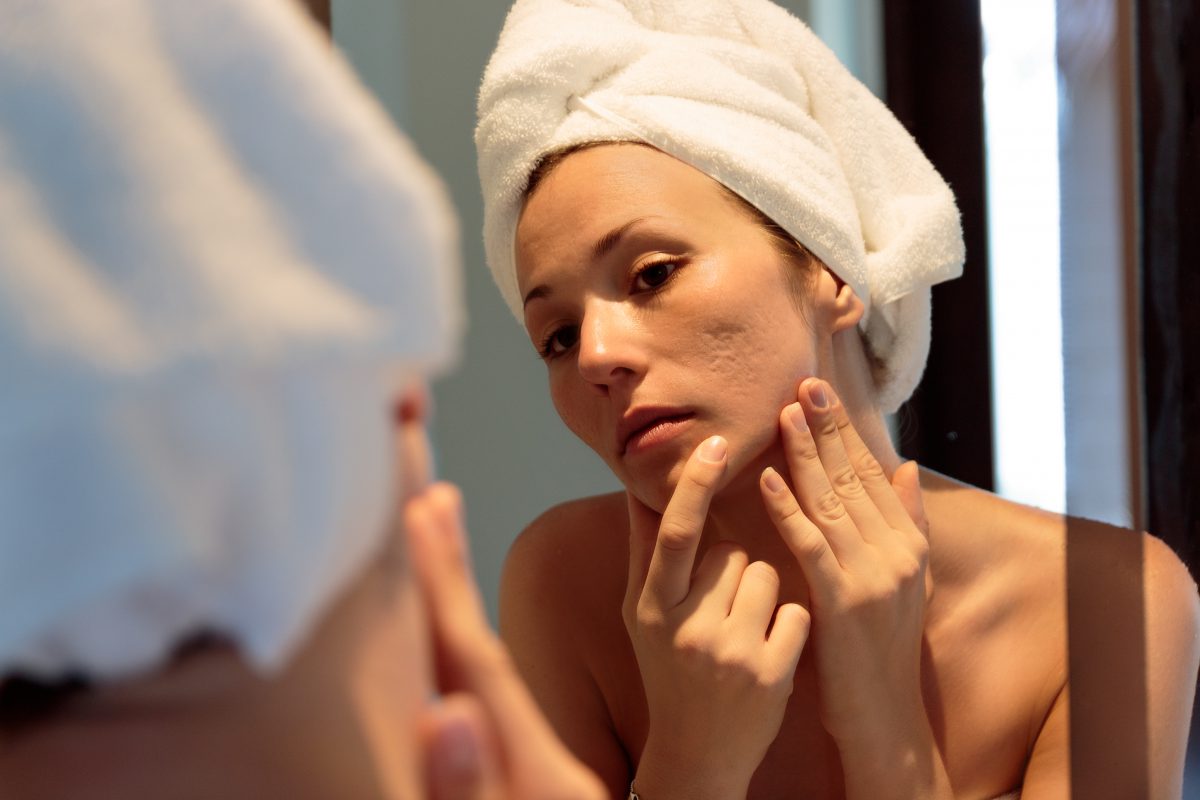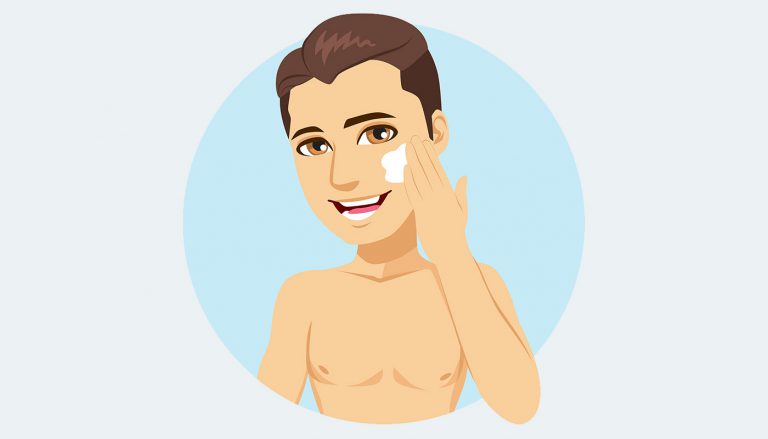Acne scars on your face? Prevent the nightmare

Pimples in your teens is one thing, having them follow you into adulthood is frustrating but knowing there’s a chance they’ll haunt you forever as acne scars on your face is a nightmare! The good news is it’s preventable so we’ve spoken to Associate Professor Kurt Gebauer to find out the best way to keep the nightmare at bay.
Am I at risk of acne scars?
If you’ve got ‘lumpy’ or inflammatory acne, you’re at risk of acne scars.
Dermatologist and All About Acne Co-Chair, Associate Professor Kurt Gebauer, said a study of almost 2,000 people with acne found 43% had acne scarring.
“We know that people with severe cystic acne are at greatest risk of scarring but even those with mild acne can be at risk,” he explained.
People with dark skin such as those from India, Pakistan, Bangladesh as well as the Asian and African continents are also extremely prone to developing acne scarring.
“It’s much simpler to avoid scarring by reducing inflammatory acne as once the scar has formed, it is almost impossible to treat. This can be particularly distressing if the acne is on your face.”
Four tips to prevent acne scars
Prevention really is better than a cure and that definitely applies to acne scars. Here’s some simple tips from an acne expert.
1. Get treatment ASAP
Treating your acne is something you’re probably doing anyway; the key is to do it sooner rather than later.
“The longer you have acne, the greater the chance of scarring,” says A/Professor Gebauer.
“Most scars – 99% – originate from inflammatory acne which are the small red bumps known as papules, and large pustules or acne cysts. Scars occur when this type of acne hasn’t been treated effectively.“
“Treatments that reduce inflammatory acne lesions include topical retinoids, antibiotics and if required for severe acne, isotretinoin,” he added. “You’ll need to see a doctor for a prescription for any of these treatments.”
While these medications are known to successfully treat acne and therefore prevent acne scars, it’s only recently that a study has found a combination topical retinoid (Epiduo Forte) can help reduce the appearance of acne scars.
Patients with moderate to severe acne commenced the study with an average of 12 scars on half of their face. Over 24 weeks this decreased by an average of two scars or 15.5%.
2. Check the gene pool
There’s a few things that run in the family and unfortunately, acne can be one of them.
“That doesn’t mean it’s a done deal but having a blood relative with acne scars does increase your risk of acne scarring,” explains A/Professor Gebauer.
“Nothing can be done about the genes we’ve inherited but knowing that you’re at greater risk of scarring makes prevention even more important.”
3. Adopt a gentle skin care routine

There seems to be a direct relationship between acne flares and scrubbing – the more acne flares, the more scrubbing likely to take place.
“No amount of scrubbing is going to make acne disappear. In fact, the reverse is true. Over-cleansing and scrubbing your skin can make acne worse, which in turn increases the risk of scarring,” says A/Professor Gebauer
Looking after your skin and treating it gently with the right skin care regimen can further improve acne.
“Cleansers and moisturisers need to work with, not against, your acne treatments. Check your products are appropriate for acne-prone skin which includes non-comedogenic or oil free ranges,” recommends A/Professor Gebauer.
4. Hands off the face!
Dr Pimple Popper knows what she’s doing and so does your dermatologist but for the rest of us, picking, squeezing or popping acne increases the risk of acne scars.
“As tempting as it may be to squeeze, leave the pimples alone!” urges A/Professor Gebauer. “This is particularly important if there’s significant inflammation and you’re regularly picking or squeezing.”
It’s something we hear all the time but do you know why dermatologists recommend a ‘hands off’ policy?
“The bacteria on your hands is transferred to your face for starters, which we’re trying to avoid,” explains A/Professor Gebauer.
“There’s a good chance you’re pushing the acne bacteria deeper into the skin which can aggravate the acne and make it even angrier and redder. You’re also tearing the skin.”
“All of this, as well as possibly being left with a scab, increases your risk of a permanent acne reminder.”
Is it actually an acne scar?
When we talk about acne scarring, it’s not the temporary red and brown marks left on the skin shortly after your acne has disappeared. These marks typically improve over time without the need for scarring treatment.
“People with darker skin will very frequently notice post-inflammatory hyper-pigmentation, which are brown marks, and can sometimes be permanent,” explains A/Professor Gebauer.
“Occasionally, the opposite occurs after picking and scratching pimples which damages pigment cells, resulting in permanent white marks,” he adds.
Acne scars are caused by inflammatory acne which tends to penetrate the skin, destroying the tissue beneath it. As acne clears, the body produces collagen to try and repair this damage.
Collagen is a protein that keeps our skin plumped giving it strength and elasticity. It’s sometimes referred to as the body’s scaffolding as it holds things together.
The older we get, the less collagen there is in our body making acne scars more noticeable. Just one more reason to try and avoid developing acne scars in the first place!
